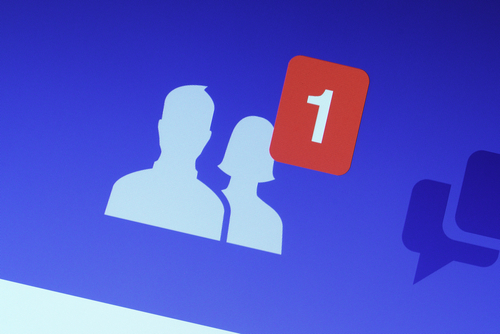Judge's Facebook friendship with lawyer doesn't necessarily require recusal, says Florida top court

dolphfyn / Shutterstock.com
A judge isn’t automatically disqualified from hearing a case because of a Facebook friendship with one of the lawyers, the Florida Supreme Court ruled Thursday in a 4-3 decision.
In the most basic sense, the Florida Supreme Court said, a Facebook friendship is a digital connection between people, and they may or may not be friends in the traditional sense of the word. Facebook friendships are more casual and less permanent than traditional friendships, and the connection “may be as fleeting as the flick of a delete button,” the court said, quoting from another case.
The mere existence of a Facebook friendship between a judge and a lawyer, without more, does not reasonably convey a close friendship, the court concluded. “No reasonably prudent person would fear that she could not receive a fair and impartial trial based solely on the fact that a judge and an attorney appearing before the judge are Facebook ‘friends’ with a relationship of an indeterminate nature,” the opinion said.
The decision is consistent with Florida precedent on traditional friendships. A mere allegation of a friendship between a judge and a litigant or lawyer, standing alone, is not enough for disqualification in the state.
Florida’s Judicial Ethics Advisory Committee has advised judges that they should not friend lawyers who appear before them, but that is a minority position, the state supreme court said. The committee’s concern about Facebook friendships “is unwarranted,” the state supreme court said.
The court ruled in a bid by the Law Offices of Herssein and Herssein to force the recusal of Miami-Dade Judge Beatrice Butchko. The judge was Facebook friends with a lawyer representing a potential witness and potential party in the law firm’s suit for nonpayment of legal fees. How Appealing noted the decision and linked to coverage by News Service Florida and Bloomberg News.
The majority decision by Chief Justice Charles Canady affirmed a decision last year by Florida’s Third District Court of Appeal. Concurring Justice Jorge Labarga wrote separately “to strongly urge judges not to participate in Facebook.”
In her dissent, Justice Barbara Pariente said she would adopt a strict rule requiring judges to recuse themselves in such situations. She quoted from an opinion in another Facebook recusal case. “Judges do not have the unfettered social freedom of teenagers,” the opinion said.



